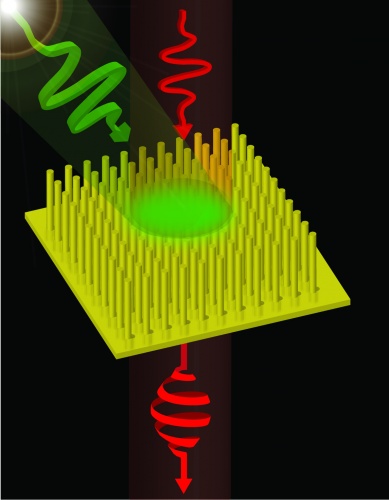Breakthrough in light manipulation could unlock faster data
Researchers at King’s College London have developed a new technique for instantly switching the polarisation of light.
The breakthrough, which has the potential to provide a major boost for data transfer and drug discovery, uses nano-structured metamaterials to manipulate light. Changing light’s polarisation is how digital information is transmitted along fibre optic cables. However, current commercial techniques for doing so are approaching their physical limits, according to the King’s team.

“Currently, Pockels Cells or Faraday Rotators are used to electronically control the polarisation of light with an electric or magnetic field,” Luke Nicholls, the PhD student who carried out the experiments, told The Engineer.
“The commercially available fastest product operates at a rate of 40GHz. We report a switching rate of over 300GHz. The metamaterial approach also has the advantage that it is easily integrated with nanoscale technologies. Pockels Cells and Faraday Rotators are big and bulky in comparison and could never be integrated 'on chip' for example.”
Made from gold nanoparticles, the metamaterial manipulates the light using a technique known as ‘all-optical polarisation control’. A high intensity light pulse is fired into the metamaterial, injecting energy into electrons in the gold particles which changes the refractive index of the material – the speed at which light travels through it.
Register now to continue reading
Thanks for visiting The Engineer. You’ve now reached your monthly limit of news stories. Register for free to unlock unlimited access to all of our news coverage, as well as premium content including opinion, in-depth features and special reports.
Benefits of registering
-
In-depth insights and coverage of key emerging trends
-
Unrestricted access to special reports throughout the year
-
Daily technology news delivered straight to your inbox











Water Sector Talent Exodus Could Cripple The Sector
Maybe if things are essential for the running of a country and we want to pay a fair price we should be running these utilities on a not for profit...